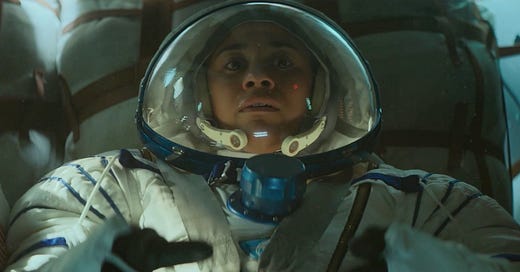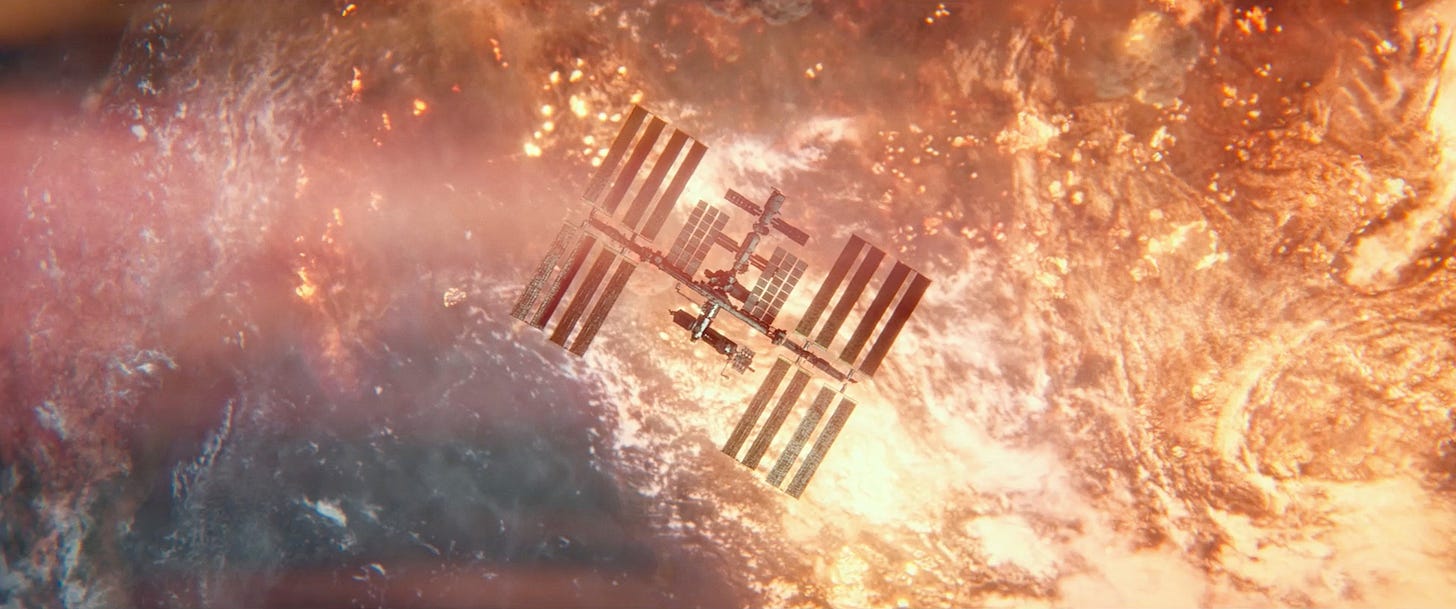'I.S.S.' brings the Cold War to space, with middling results
The new film from director Gabriela Cowperthwaite is much better as an idea for a movie than as a movie itself
Give the new film I.S.S. this: It’s a great, great premise for a movie.
A group of American astronauts and Russian cosmonauts are in the middle of a mission on the International Space Station. While their mission is in progress, war breaks out between their two countries, back down on Earth, and the characters in space have to deal with the consequences of the battle down below. Complicating matters is that there’s at least one international love affair going on.
Intriguing stuff which, as we saw when Russia invaded Ukraine two years ago, has at least some basis in reality. However, it merely involved sanctions being placed on Russia, rather than an actual mini-Cold War war on the I.S.S.
The film is also buoyed by a strong cast, with Ariana DeBose, Chris Messina, and John Gallagher Jr. on the American side, while the Russians are played by Costa Ronin (Oleg from The Americans), Pilou Asbæk (Euros Greyjoy from Game of Thrones) and Masha Mashkova. Aside from Asbæk being Danish, all the actors are the nationalities they play, although Ronin is Russian-Australian.
There’s even one scene where the entire cast belts out the Scorpions’ end-of-the-Cold-War ballad “Wind of Change,” a few years back, it was the subject of a whole podcast looking into whether its recording and release was all a CIA op. That song, however, is all the singing that Broadway stalwart DeBose does in the film.
The film was directed by Gabrielle Cowperthwaite, best known for the anti-Sea World documentary Blackfish, and she said in a recent interview that the film shot during the early lockdown phase of COVID. This indicates that it was conceived before the current Russia-Ukraine war- and that it’s been sitting on the shelf for a bit.
I.S.S., in various ways, recalls The Hunt For Red October, both in its Cold War theme and its enclosed space paranoia. Other scenes, including a dramatic spacewalk, evoke Alfonso Cuaron’s Gravity.
The actual arc of the movie, however, is somewhat disappointing. The plot merely consists of a series of twists involving betrayals, while the film never gets all that creative when it comes to blocking of scenes. It all leads up to zero-gravity physical fights that aren’t all that interesting.
Indeed, the premise requires the actors to spend the entirety of the plot floating around the station, and the film is full of shots that seem to have been lifted directly from Kubrick’s 2001: A Space Odyssey (though in fairness, it can be difficult to make a movie aboard a space station and not do that.)
As for the love affair on the International Space Station, it doesn’t appear that anyone has ever actually had sex in space, although according to the expansive Wikipedia entry on “Sex in Space,” the topic has been explored by sci-fi authors from Arthur C. Clarke to Isaac Asimov, in addition to multiple attempts by different groups of pornographers.
I.S.S. premiered last spring, at the Tribeca Film Festival, and its January release indicates that not much is being ventured with its theatrical bow. The film has its moments and may appeal to fans of some of the stars, but it’s never going to rank among the best space movies.





